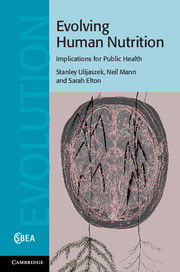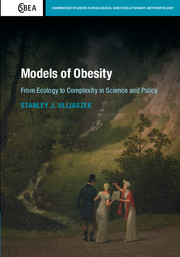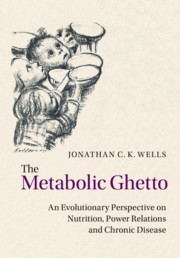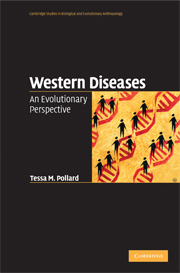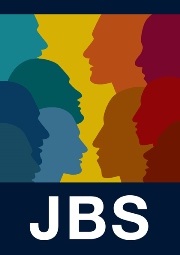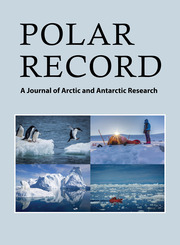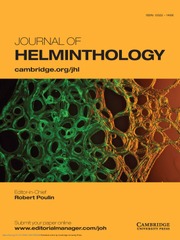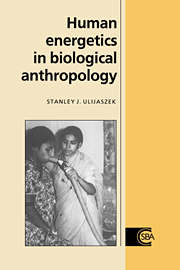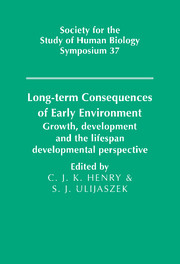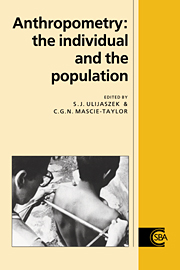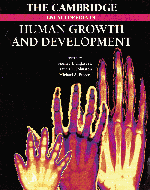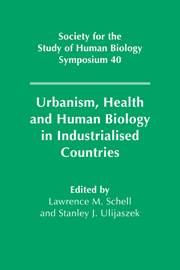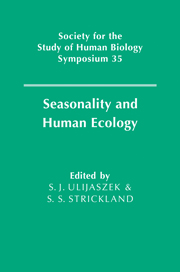Evolving Human Nutrition
Implications for Public Health
$160.00 (C)
Part of Cambridge Studies in Biological and Evolutionary Anthropology
- Authors:
- Stanley J. Ulijaszek, University of Oxford
- Neil Mann, Royal Melbourne Institute of Technology
- Sarah Elton, The Hull York Medical School
- Date Published: November 2012
- availability: Available
- format: Hardback
- isbn: 9780521869164
$
160.00
(C)
Hardback
Other available formats:
Paperback, eBook
Looking for an examination copy?
This title is not currently available for examination. However, if you are interested in the title for your course we can consider offering an examination copy. To register your interest please contact [email protected] providing details of the course you are teaching.
-
While most of us live our lives according to the working week, we did not evolve to be bound by industrial schedules, nor did the food we eat. Despite this, we eat the products of industrialization and often suffer as a consequence. This book considers aspects of changing human nutrition from evolutionary and social perspectives. It considers what a 'natural' human diet might be, how it has been shaped across evolutionary time and how we have adapted to changing food availability. The transition from hunter-gatherer and the rise of agriculture through to the industrialisation and globalisation of diet are explored. Far from being adapted to a 'Stone Age' diet, humans can consume a vast range of foodstuffs. However, being able to eat anything does not mean that we should eat everything, and therefore engagement with the evolutionary underpinnings of diet and factors influencing it are key to better public health practice.
Read more- Considers the social aspects of human nutrition
- Critically examines the idea of a 'natural' or 'Stone Age' human diet
- Explores how diet has influenced health and disease throughout human history
Reviews & endorsements
"Spanning the diverse fields of nutrition ecology, anthropology, biochemistry, and physiology, this three-part, well-written examination of the public health implications of the rapidly changing human diet is filled with carefully documented arguments that invite critical thought. Recommended."
A. P. Boyar, CUNY Herbert H. Lehman College, for ChoiceSee more reviews"… this book brings together a wide range of issues and highlights how contemporary human nutrition is embedded in the contexts of our primate heritage, our hominin ancestry, and our inter-twined histories and modes of social organization. In this way, the book is successful in its aim of going beyond the conventional assumption that modern diets can damage health because our biology remains adapted to a somewhat nebulous 'paleo-diet'."
Jonathan Wells, Childhood Nutrition Research Centre, Institute of Child Health, for the American Journal of Human Biology"This is an extremely eclectic book that covers the evolutionary background, medical effects, and sociopolitical context of our food."
Grant A. Rutledge and Michael R. Rose, The Quarterly Review of BiologyCustomer reviews
17th Oct 2024 by UName-330875
This is a splendid background book for Public Health practitioners who wrestle with the task how to comdat the curerend Epidemic of diseases of Affluence in our modern society. Very informative and well written!
Review was not posted due to profanity
×Product details
- Date Published: November 2012
- format: Hardback
- isbn: 9780521869164
- length: 414 pages
- dimensions: 235 x 157 x 25 mm
- weight: 0.72kg
- contains: 66 b/w illus.
- availability: Available
Table of Contents
Acknowledgements
1. Introduction
Part I. The Animal Within:
2. Locating human diet in a mammalian framework
3. Diet and hominin evolution
4. Seasonality of environment and diet
5. Evolution of human diet and eating behaviour
Part II. A Brave New World:
6. When our brains left our bodies behind: dietary change and health discordance
7. Nutrition and infectious disease, past and present
8. Inequality and nutritional health
Part III. Once upon a Time in the West:
9. Nutrition transition
10. Fats in the global balance
11. Feed the world with carbohydrates
12. Post-script
Index.
Sorry, this resource is locked
Please register or sign in to request access. If you are having problems accessing these resources please email [email protected]
Register Sign in» Proceed
You are now leaving the Cambridge University Press website. Your eBook purchase and download will be completed by our partner www.ebooks.com. Please see the permission section of the www.ebooks.com catalogue page for details of the print & copy limits on our eBooks.
Continue ×Are you sure you want to delete your account?
This cannot be undone.
Thank you for your feedback which will help us improve our service.
If you requested a response, we will make sure to get back to you shortly.
×
